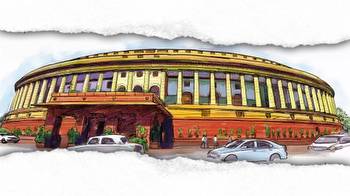The Online Gaming (Regulation) Bill, 2022: A Welcome, but Insufficient Step in the Right Direction
Legislative Initiative Aimed at Boosting the Gaming Sector and Protecting the Players
The Online Gaming (Regulation) Bill, 2022 was proposed as a private legislative initiative in the Lok Sabha on April 1 this year by MP Adv. Dean Kuriakose from Kerala. The draft bill is aimed at the creation of a regulated legal environment for gaming activities that will boost the economic sector and protect the players from the associated risks. Yet, legal experts have their concerns over how effective this piece of eventual legislation might be achieving the set goals.
In the current legal situation in India, gamers looking for the best online roulette casino or the most intriguing online fantasy league have to keep a wary eye on where and how they choose to play, as the government has not provided a system that would ensure that only safe gaming products are available.
Gaming businesses, including developer studios, publishers and play platforms, on the other hand, are forced to exist in a patchy and fluctuating legal environment and endure an unjustifiably high compliance burden with laws and even bans significantly varying from state to state and from time to time. Legal uncertainty blocks the industry’s potential for growth and makes it difficult to attract new investments.
The draft Online Gaming (Regulation) Bill attempts to solve these issues by introducing a licensing regime for gaming operators and servers and by establishing an Online Gaming Commission on the national level.
Offering online games or operating a gaming server or website without a license will be a cognizable and bailable offence. Gamers who play on such unlicensed platforms would also be liable for punishment.
The Commission will have vast powers to oversee the functioning of the gaming sector, to take measures to curb illegal gaming, and to grant, suspend or revoke licences.
The gaming regulator body, in consultation with the Central Government, will also elaborate rules for carrying out the purposes of the Bill relating to licensing conditions and fees, accounts keeping, age-based and other restrictions for gaming platform employees and players, the type of notices to be displayed on gaming websites, restrictions and conditions for the provision of credit facilities by licensees to gamers, and other matters.
The Bill Fails to Address a Number of Important Matters
Although the introduction of the Bill is a welcome step in the right direction, the draft fails to address a number of important matters needed for the creation of a healthy business climate for gaming businesses and a safe gaming environment for the public.
For example, the Bill makes no distinction between online casino real money games, casual games that feature real money elements, and basic free games, as well as between games of skill and games of chance, putting all gaming varieties under the same umbrella and licensing regime.
With the exception of mentioning rules for notices on gaming websites and restrictions on credit facilities by operators, the Bill doesn’t provide even a broad framework of gamer protection norms, leaving all into the hands of the Commission.
The clauses of the Bill stipulate nothing concerning responsible gaming policies, user data protection, know your customer (KYC) protocols, grievance redressals, restrictions on advertising and marketing, and other related matters.
Moreover, no attention is given to the legal mechanism needed for the Bill to have effect and how it will relate to the constitutional provision that games of chance and gambling are a state matter, or to the existing gaming legislations and licensing regimes in states like Meghalaya, Nagaland and Sikkim.
Solutions Exist around the World and Need Only to Be Implemented in India
The question how to regulate online gaming and gambling effectively is neither a new one, nor has arisen only in India. A number of jurisdictions around the world have worked to find solutions and have developed national or state-level regulatory frameworks over gaming
Countries like the UK, Sweden, Denmark, Germany, a number of states in the US, and recently Peru and Uruguay, have adopted gaming legislations based on a regulatory authority, licensing regime, and gamer protection orientation.
Responsible gaming policies are a common trait and focus of modern-day gaming regulations. Such policies typically include easily accessed and efficient self-exclusion mechanisms, obligations for operators to protect problem gamblers, including digital identity verifications, advertising restrictions, transaction and login limits, and blacklists for both operators and gamers.
India can learn from the established gaming regulation practices around the world, compile the best elements and adapt them to the local environment and cultural specifics. Integrating the country’s unique Aadhaar Digital ID system in the age verification, customer protection and self-exclusion mechanisms of the gaming regulation will make the task even easier.

































